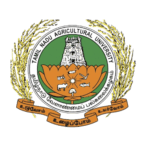Diploma in Agriculture
Diploma in Agriculture is a 2-year practical-oriented program designed to equip students with essential skills in crop production, soil science, irrigation, plant protection, and farm management. This course prepares students for careers in agriculture, agri-business, or further studies by offering hands-on training and real-world agricultural exposure.

About The Program
The Diploma in Agriculture is a comprehensive 2-year program offered by Tamil Nadu Agricultural University, designed to provide foundational and practical knowledge in modern agriculture. With a curriculum that blends classroom instruction and hands-on field training, the course covers agronomy, soil science, horticulture, plant protection, farm machinery, irrigation techniques, and agricultural economics.
This program aims to:
- Empower students with job-ready skills for the agriculture sector.
- Support rural youth in becoming agri-entrepreneurs.
- Prepare students for higher education or government job opportunities in agriculture and allied fields.
- Foster awareness of sustainable and scientific farming practices.
With a strong focus on practical training, field visits, nursery management, and live crop cultivation, the course enables students to confidently manage real-time agricultural operations. It is an ideal choice for students passionate about farming, agri-technology, and rural development.
Program Curriculum
The Diploma in Agriculture is structured over 4 semesters (2 years), offering a balanced mix of theory and practical training. The curriculum is designed by Tamil Nadu Agricultural University (TNAU) to build core competencies in modern and sustainable farming practices.
Year One
Semester I: Foundation of Agriculture
Focus: Understanding the basics of farming and agricultural systems.
- Principles of Agronomy & Meteorology: Introduction to crop production practices and weather influences.
- Soil Science: Physical and chemical properties of soil, and fertility management.
- Irrigation & Weed Management: Efficient water use and weed control strategies.
- Horticulture: Propagation techniques in fruit and vegetable crops.
- Microbiology: Role of microbes in soil and crop health.
- Farm Machinery & Post-Harvest Technology: Basic tools, equipment, and storage methods.
- Computer Applications: Introduction to digital literacy in agriculture.
- English Communication & Physical Education: Skill building in language and fitness.
Semester II: Crop and Soil Management
Focus: Strengthening crop knowledge and resource management.
- Field Crop Agronomy I: Detailed study of cereals, millets, and pulses.
- Seed Technology: Quality seed production and certification methods.
- Vegetable & Fruit Cultivation: Seasonal planning, cultivation techniques, and harvesting.
- Plant Pathology & Entomology: Identification and control of crop diseases and pests.
- Soil Nutrient Management: Balanced fertilization and use of organic inputs.
- Energy & Environment: Renewable energy, pollution control, and sustainable farming practices.
Year Two
Semester III: Practical Crop Production
Focus: Applying knowledge in real crop cultivation and plant breeding.
- Field Crop Agronomy II: Oilseeds, sugarcane, cotton, and forage crop management.
- Crop Production I (Field Work): Students manage a live plot – sowing to harvest.
- Plant Breeding Techniques: Pollination methods, hybrid seed development, and varietal selection.
- Pest & Disease Management: Integrated approaches (IPM) and safe pesticide use.
- Agricultural Economics & Marketing: Farm budgeting, credit, market channels, and MSPs.
- Commercial Agriculture I: Exposure to input management, marketing, and agri-business models.
Semester IV: Specializations and Extension
Focus: Diversification and outreach in agriculture.
- Dryland Farming & Agroforestry: Techniques for water-scarce areas, tree-based farming.
- Crop Production II (Field Work): Live plot work with emphasis on rice or major crops.
- Floriculture, Spices & Medicinal Plants: Cultivation, harvesting, and value addition.
- Livestock & Poultry Management: Rearing, housing, nutrition, and healthcare of animals.
- Commercial Agriculture II: Project planning, input-output analysis, agri-enterprise operations.
- Extension Education: Communication skills for technology transfer to rural communities.
- Study Tour: Visits to farms, nurseries, agro-industries, and research stations.


